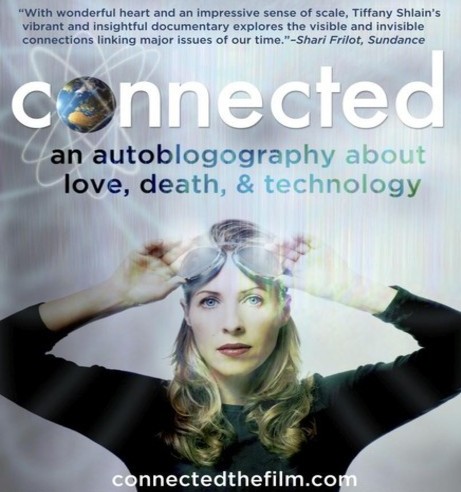Tag : Amanda Walgrove
November 10, 2011 by Amanda Walgrove
The Quest for Connection
 Tiffany Shlain’s newest film, “Connected: An Autoblogography About Love, Death & Technology,” explores the history of human interaction, and the hope that natural and technological connections don’t have to be mutually exclusive.
Tiffany Shlain’s newest film, “Connected: An Autoblogography About Love, Death & Technology,” explores the history of human interaction, and the hope that natural and technological connections don’t have to be mutually exclusive.
Honored by Newsweek as one of the “Women Shaping the 21st Century,” Tiffany Shlain has been making films for nearly two decades. Somewhere in the middle, when she was 26, she also founded the Webby Awards.
It wasn’t until “Connected” that the filmmaker made the decision to step in front of the camera herself. Says Shlain, “I chose to speak my truth in order to speak to some universal truth. That was my guiding principle.” When she suddenly received news that her father had nine months to live and that she was pregnant with a second child, Shlain decided that telling her own story would ultimately convey the true struggle of what it means to be connected. The film encourages a return to our roots, to the fundamental values of human interaction and the use of social networks as support systems.
- No Comments
October 18, 2010 by Amanda Walgrove
At the Theater: Abraham's Daughters

Abraham’s Daughters, written by Elissa Lerner and directed by Niccolo Aeed, premiered at the New York International Fringe Festival this year along with over 200 other talent-filled plays. Lerner, currently a graduate student at NYU, penned the script as a thesis for her double major in Religion and Theater Studies at Duke University. After reading a great deal of text about Abraham’s Biblical sons, the playwright pondered, “Even to provoke half of a thought: What if? How would things be different? How would women tell the story of their religious experiences?” Lerner, as the female pseudo-Abraham, scribed the lives of the Jewish Sarah (Rebecca LaChance), her Muslim roommate Ranya (Dea Julien), and their Christian friend Kate (Keely Flaherty). Additionally, Lerner cleverly throws Will (Aryeh Lappin) into the mix, representing a belief that is becoming increasingly contagious throughout American youth. He is an atheist who repeatedly insists on being called a rationalist. In a contemporary and relatable context, these four friends come to understand that religious values can be as fragile as budding friendships. (more…)
- No Comments
 Please wait...
Please wait...